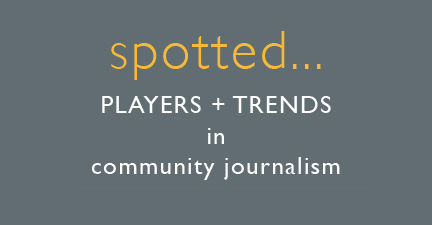
The merger of VTDigger.org and the Vermont Journalism Trust has led to $88,000 in support in just five months -- and caused the industry to take note of an emerging stewardship model.
With funding from J-Lab's Networked Journalism initiative, The Pittsburgh Post-Gazette's editors set about to rethink, alongside others, how the organization could cover Marcellus Shale, a massive topic to their region.
In the weeks after Retha Hill launched the first iteration of her Mobile Black History Project in January 2011, the response was overwhelmingly positive.
Stories about financial success and strong content top the latest news from our New Voices grantees.
As news of the Jan. 8 mass shooting in Tucson the coursed through the web,
TucsonCitizen.com quickly became hobbled. Although editor Mark Evans didn't realize it at the time, his site became one of the first with the news of a mass shooting when a politically connected blogger posted one sentence: "Gabrielle Giffords shot in head in Tucson."
Focusing on race as a natural niche within local news, the former newspaper editor and reporter's Charlotte news sites are attracting readers and advertisers alike.
Press+ is offering publishers of today's news sites a chance to begin collecting for their content without setting up a pay wall. Their solution is designed to encourage a reader to pay after consuming a set amount of content.
New tools like Storify and Intersect make crowdsourcing stories easier and more relevant.
Sometimes the time is right. More on the "Anatomy of a Shutdown" for New Hampshire's Rye Reflections.
Kudos again to The Seattle Times for reporting a complex topic using trusted journalists in their hyperlocal partnership. This time, the paper had seven of its partners write stories around the issues homeless families in their neighborhoods face for a multi-part printed and online series called "Invisible Families" synchronized to run on Monday.
Washington, D.C.'s local media scene officially welcomed a new player Aug. 9. TBD, as in To Be Determined, is a venture of privately held Allbritton Communications, which also owns the website and newspaper Politico, an ABC affiliate and a 24-hour cable news channel.
How a Minneapolis nonprofit news site is making money in a crowded field.
Capital-centric site quietly launches with nearly $2 million in foundation support for three years
An interactive news timeline went from being 'just an idea' to a major innovation for a Minneapolis TV station - with the help of a willing advertiser.
Combining paid editorial staff and community contributors, site also has ad network revenue to help support the bottom line.
